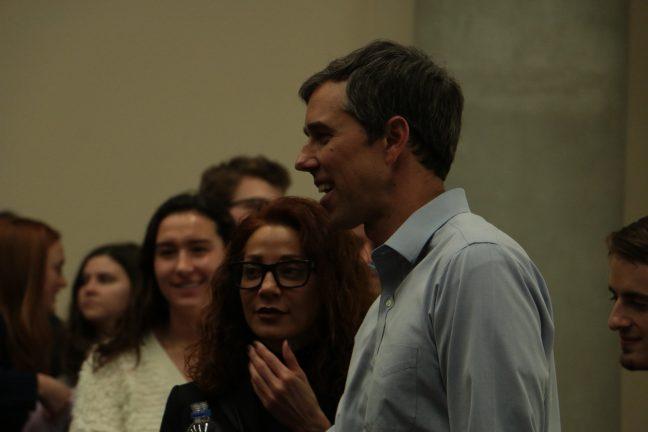Former U.S. Rep. Beto O’Rourke, D-Texas, announced Friday he has ended his 2020 presidential bid. What may be dismissed as just another low-polling Democratic hopeful dropping the race to make room for the top-tier candidates is actually a major development in the race to the nomination.
The seemingly candid Texan predominantly fought for mandatory buy-backs of assault-style rifles without restraint on his passion to change gun politics in America.
“Hell, yes, we’re going to take your AR-15, your AK-47,” he declared confidently at the September debates.
O’Rourke has shaped the gun conversation, normalizing the demand for massive change in gun laws — perfectly on-brand for a 2020 Democratic candidate to expose a sound argument for big legislation that rallies a surprising amount of support. From what once might be seen as radical, extremist negative and a turn-off for many voters is now being seriously considered and supported.
O’Rourke’s strong stance came into light after the devastating August shooting at a Walmart in his hometown, El Paso, Texas. He took a break from the campaign trail briefly to return home to his community for support during the disheartening time.
Deeply loved by his supporters, many saw O’Rourke as a spiritual revival of Bobby Kennedy. Whether it was the shared first name (Robert Francis), political upbringing or even their faint resemblance to each other, O’Rourke echoed the hope RFK once embodied.
He was a candidate for the people, listening to and voicing their needs and stepping away from the manner of a typical politician. For Kennedy, it was ignoring the recommendations of his staffers on the trail and using rhetoric unlike any other political figure at the time. For O’Rourke, it was dropping f-bombs, standing on the tables of local bars and having a brew with voters.
The former representative made a huge wave in 2018 by just barely losing the Senate race in Texas to Sen. Ted Cruz, R-Texas, signaling a future shift in traditionally conservative Texas politics. O’Rourke’s name recognition from that race carried him into his 2020 campaign, announcing his candidacy months ahead of most.
Though his seemingly strong momentum didn’t last long, O’Rourke’s departure could trigger a massive shift in the race for the Democratic nomination. As the first drop from the second tier of serious candidates, others may be poised to follow his lead. Sen. Kamala Harris, D-Calif., has recently closed campaign offices in New Hampshire and fired staffers to reallocate resources towards her struggling efforts in Iowa.
And Harris isn’t the only one running out of money. Sen. Cory Booker, D-NJ, signaled a coming end to his campaign by placing its future on a fundraising deadline back in September, which he met, but funding won’t last forever. Former Vice President Joe Biden is even accepting money from political super PACs to not run out of money.
O’Rourke was ahead of almost ten other candidates in the polls, so a drop from him is likely to signal to the low-polling candidates that are struggling for air that their time is up, too.
Removing options for voters presents a golden opportunity for the top-tier candidates to gain more support. If the candidates who are polling at or below where O’Rourke was polling at the time of his announcement, more than 10% of loyal Democratic voters will be up for grabs for any of the leading candidates. That is enough to surge any of the top four candidates — Biden, Buttigieg, Sanders and Warren — into first and sit there comfortably.
Additionally, the Democratic National Committee has raised the threshold for qualification for the December debates, which is just another way to force candidates from the race. If candidates repeatedly cannot meet the qualification, they will lose media attention and ultimately support from voters.
To qualify in December, each candidate must either receive at least 4% of support in four DNC-approved polls, either nationally or in early voting states (Iowa, New Hampshire, Nevada or South Carolina), or 6% of support in two polls in early voting states. Candidates must also have donations from at least 200,000 unique donors with at least 800 donors in 20 different states, territories or DC.
A lot is subject to change within these next three months until Iowa caucuses, so thank you, Beto O’Rourke, for leading by example. Thank you for sending the message to other low-polling and empty-pocketed candidates that it is okay to drop out ― encouraged, even. There is no shame in dropping out, for your endorsement of another candidate will go a long way to show what you stand for, far longer than prolonging the inevitable end to your campaign, and we will be here to trust your endorsement and to point us in the right direction when the time comes.
We, as voters, need the time to decide for ourselves who we want to see battle Trump for the presidency, and we cannot do so until candidates are narrowed down.
Kaitlin Kons (kkons@wisc.edu) is a sophomore studying political science and public policy.


